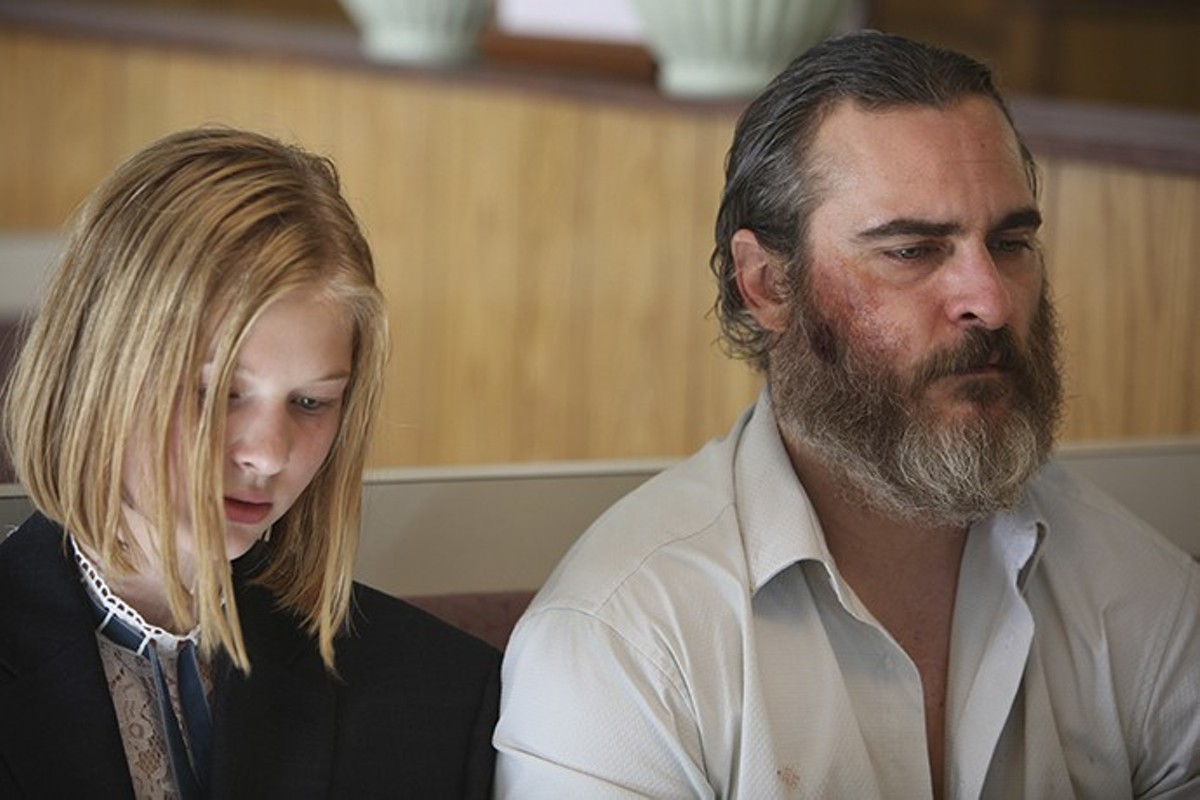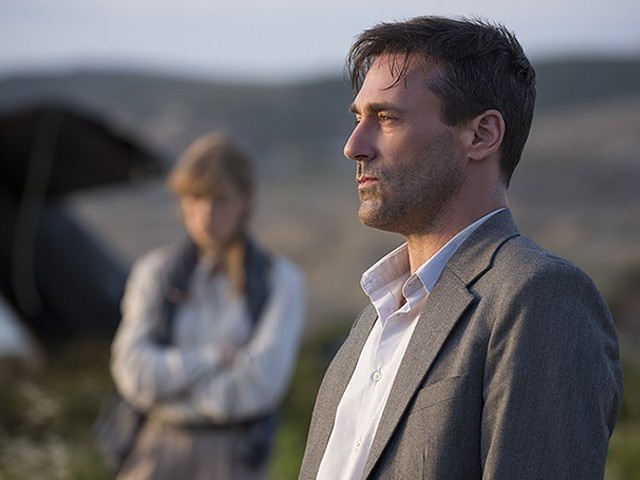Neo-noir is a fashionable label right now, but few films qualify for it as fittingly as Lynne Ramsay's You Were Never Really Here, a disturbing kaleidoscope of violence and psychological trauma. Just as the original noir films of the '40s and '50s gave post-World War II angst a striking and creative visual style, Ramsay dives deep into a dark world of paranoia and brutality in a startlingly original way. Next to her work, slick and self-satisfied films such as Baby Driver and Good Time seem like little more than sophomoric Tarantino-inspired fan fiction. Where those films present violence and corruption as a one-dimensional comic strip panel, Ramsay sees a hall of mirrors, a labyrinth with no certain exit.
Based on a short novel by Jonathan Ames, You Were Never Really Here is set deeply in the mind of Joe (Joaquin Phoenix), a traumatized veteran who lives with his mother in New York City and works as a hit man. He's cautious and deliberate, with a special interest in targeting those who exploit young girls.
When he's hired to rescue the daughter of a local politician from a brothel, things turn bad quickly; Joe has stepped into a nightmare, with a ball-peen hammer his only weapon. It sounds like familiar noir territory, but don't be misled by this straightforward summary; Ramsay tells the story from Joe's uneasy point of view, resulting in a fragmented narrative that may take multiple viewings to piece together.
Despite directing one of the first great films of the 21st century (the underrated Morvern Callar), and having a modest art-house hit with We Need to Talk About Kevin, the Scottish-born Ramsay remains a cinematic outsider. It's not hard to see why. She has a unique vision and isn't interested in making audiences feel comfortable. She also has a gift for making the ordinary world look like something out of a science-fiction film, with the audience in the uneasy position of an alien visitor trying to make sense of it. You Were Never Really Here presents New York as a hallucination, a trip through Joe's broken psyche.
Ramsay is a director of great precision and efficiency. This is a violent film, yet some of the most effective and shocking moments get their force from what she cuts away from. In one crucial scene, she recreates the rhythm of a video surveillance system, as Joe dispatches a string of guards, each attack missed by split seconds by the security cameras.
She's found a great collaborator in Phoenix, a pudgy, unglamorous hero. Is there any other current actor who could bundle himself tightly enough in his own neuroses to pull this off? He makes no effort to charm or impress the audience and his performance contains not a singe false moment; Phoenix seems truly lost in Joe's pain.
Also surprisingly effective is Jonny Greenwood's suitably neurotic score, blending ambient electronica with dark, minimalist strings. Ramsay makes the risky choice of balancing this with an assortment of absolute barrel-scrapings of sentimental pop music, such as Engelbert Humperdinck's "After the Lovin'" and the atrocious kitsch of Charlene's 1982 hit "I've Never Been to Me." It's a little heavy-handed, but it gives the impression of Joe picking up radio signals from a parallel world of bland normalcy.
It is impossible to discuss Ramsay's film without noting the strong influence of Taxi Driver, which still disturbs and confounds viewers after 40 years. (I've shown Scorsese's film in classrooms many times and have routinely received essays desperately attempting to reinterpret the film as a conventional Travis vs. the Mob action movie, despite the irony of its final scene.) You can see the where Ramsay uses fragments of it: a confused protagonist trying to rescue a young girl, a vague shadow network of politicians and hoods, and of course, the startling and unpredictable violence.
But You Were Never Really Here isn't just a movie-lover's homage, it's Taxi Driver as Travis Bickle might obsessively tell it to himself, looking for justification in his rearview mirror. It's a fantasia on the still-challenging 1976 film, a new and wholly original perspective from an inventive, uncompromising filmmaker.






